Valley
It’s not just humans suffering under the lockdown—dogs are, too
Street dogs are usually fed by neighbourhood stores and butcher shops, which have all closed down, and passers-by, who’re all at home.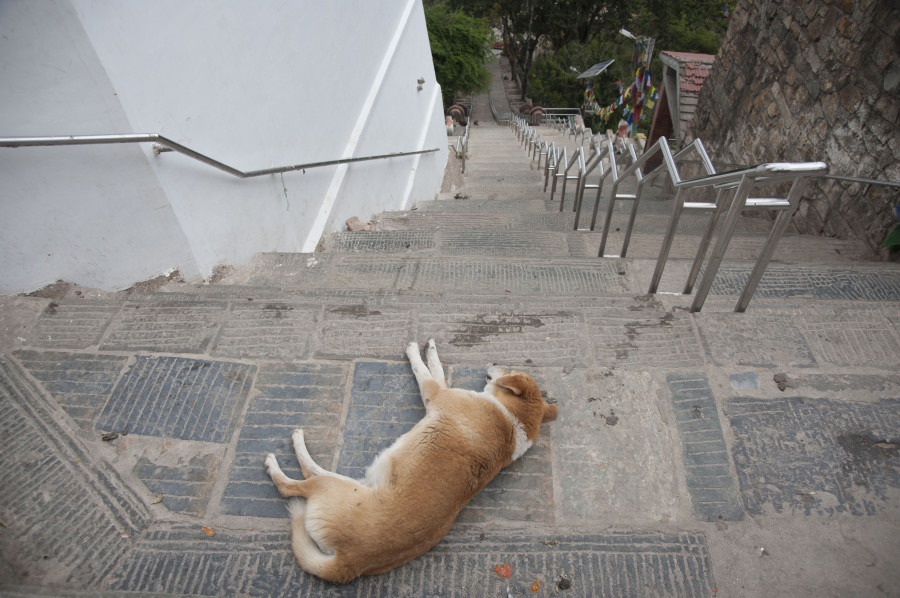
Anup Ojha & Tsering Ngodup Lama
On day two of the nationwide lockdown on Wednesday, Sonam Dekey was up by 5am. Ever since the lockdown was announced by the government in a bid to control the spread of Covid-19, the image of Boudha's stray dogs going hungry had plagued her mind. Dekey knew the dogs depended on the generosity of restaurant owners and passers-by for food.
“But with people's movement restricted and restaurants closed, I was worried that the lockdown would starve these dogs to death,” said Dekey, who often feeds a mixture of buff or chicken with rice to the 30-odd dogs in her neighbourhood. But with the extensive closures, Dekey has been forced to resort to dog biscuits she gets from Street Dog Care, a Boudha-based animal rights organisation.
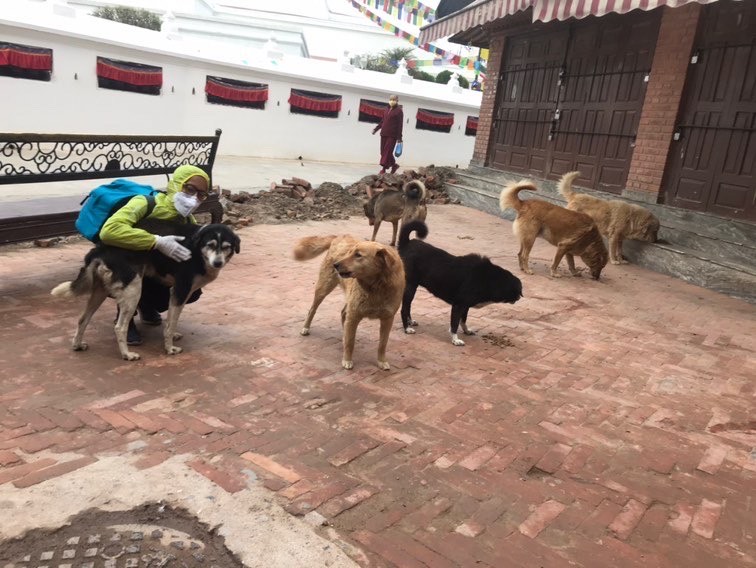
As butchers, restaurants and shops around Kathmandu have all virtually closed, approximately 26,000 street dogs around the Capital are relying on people like Dekey to keep them fed for as long as the Covid-19 lockdown persists. On Tuesday, Dekey, along with a Street Dog Care staff member, fed and watered approximately 90 dogs, she said.
Although all movement outside of the house has been prohibited, Dekey said that the police have allowed her to continue, so long as she maintained a distance from other humans. But the rules remain unclear.
According to Ben Charman, a board member of the Kathmandu Animal Treatment (KAT) Centre, despite having identification verifying their place of work, they were being treated badly.
“One of our staff was beaten by a policeman. What we want is some sort of assurance from the government,” said Charman, who said he had heard of other cases of people being beaten for violating the lockdown. “Our team is scared of both the coronavirus and the police now.”
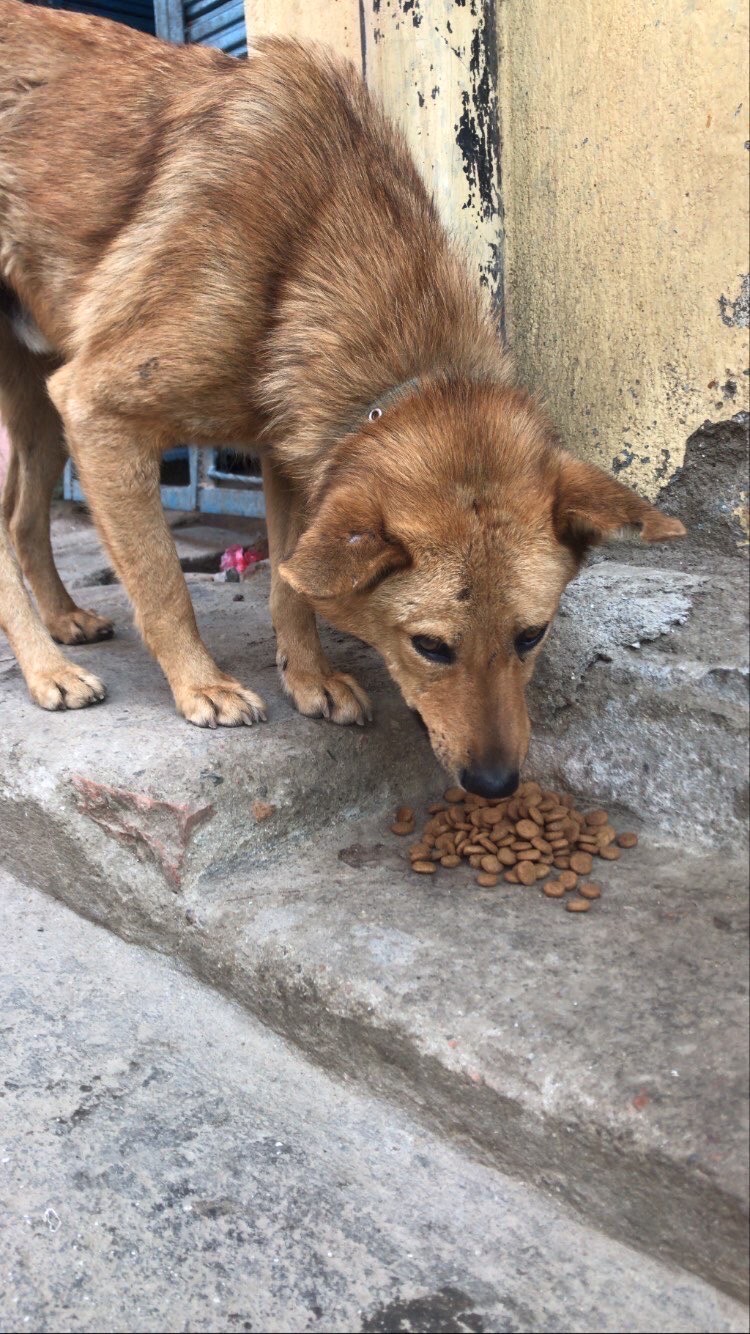
KAT Centre has applied for permits from the government, but Charman anticipated it would take another few days for anything to be granted. That means the organisation will not be able to continue giving cancer-ridden canines chemotherapy treatments or dealing with other emergency cases until the permits arrive.
If the lockdown is extended, it will become very difficult for the organisation to function, said Charman.
Animal Nepal’s mobile response treatment service and Chobhar Dog Treatment Centre have also been functionally suspended since March 22, the day the lockdown was announced.
“It’s been worse than Dashain. Even the shops are closed, so there’s no one to feed them at all,” said Animal Nepal president Pramada Shah. “If each person fed one dog, then no dog would go hungry.”
Shah said that the organisation needed vehicle passes so it could rescue emergency cases. But she was both happy and surprised that communities had been doing their bit to make sure street dogs were relatively well fed, and has appealed to the public to continue being vigilant about dogs in critical conditions, asking people to contact Animal Nepal if they come across any dogs requiring medical attention. The organisation would try to address the issue any way it could, said Shah.
As Shah observed, numerous good samaritans across the Valley are making sure that the dogs don’t go neglected.
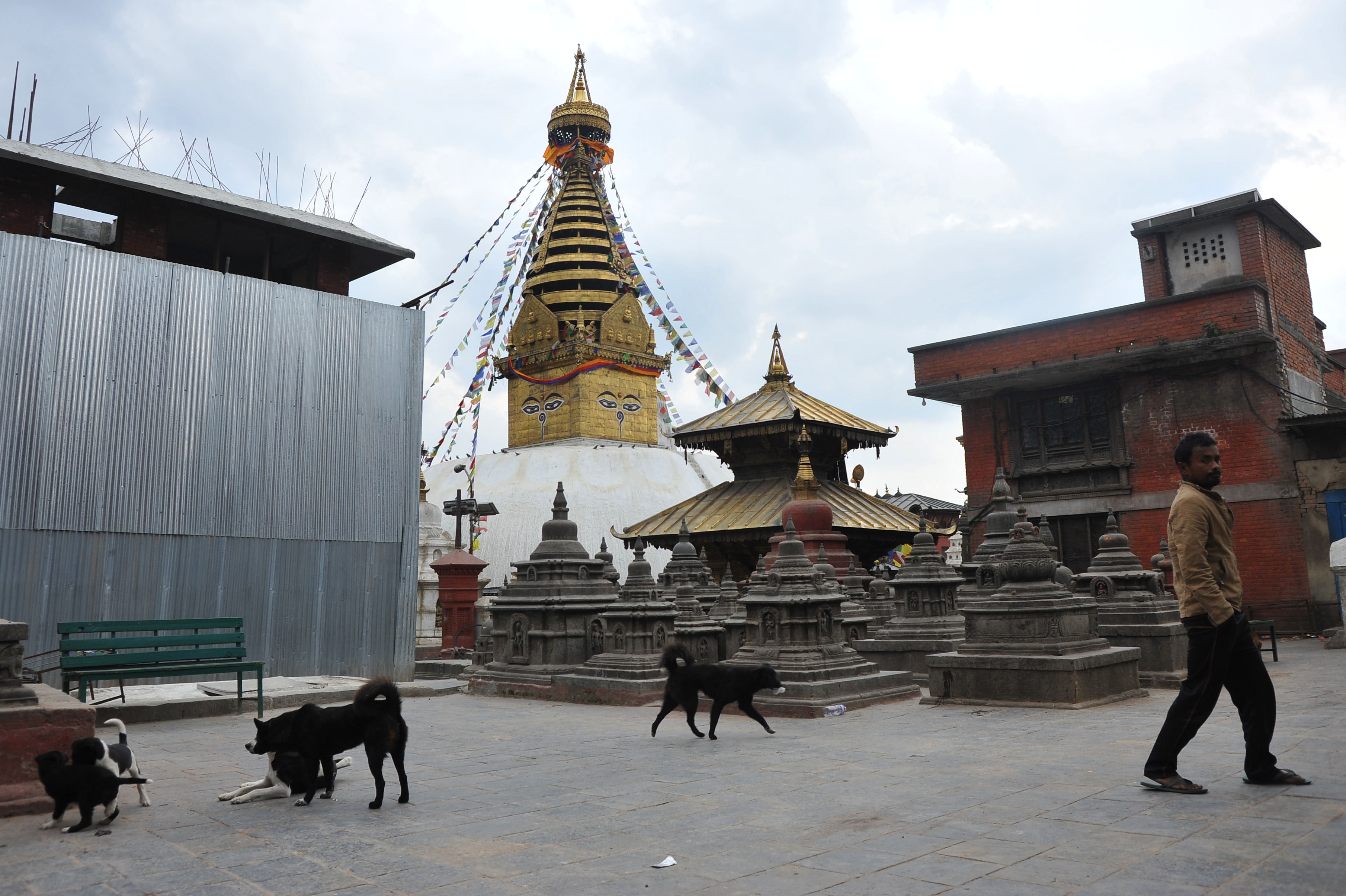
Muna Subedi is one.
Subedi, who runs a shop in Bakhundole, collects leftover food and puts it in a bucket for the dogs in the area.
“Before people would come to our shop and buy biscuits to offer to stray dogs. But there aren't any people on the road," said Subedi.
“Around half a dozen dogs had gathered around my store on the first day of the lockdown, waiting for food. They looked thirsty and hungry. But from the second day I have not seen them around.”
Subedi’s shop has been mostly closed for the past three days.
Indu Byanjankar also houses 30 stray dogs in her family’s garage in Kupondole and feeds around 70 stray dogs every day at the UN park along the Bagmati River in Jwagal and Kupondole.
“The police have not obstructed me, since I do it in the early hours of the morning,” said Byanjankar. “We have frozen meat and enough rice for a week, but don’t know what to do after that.”
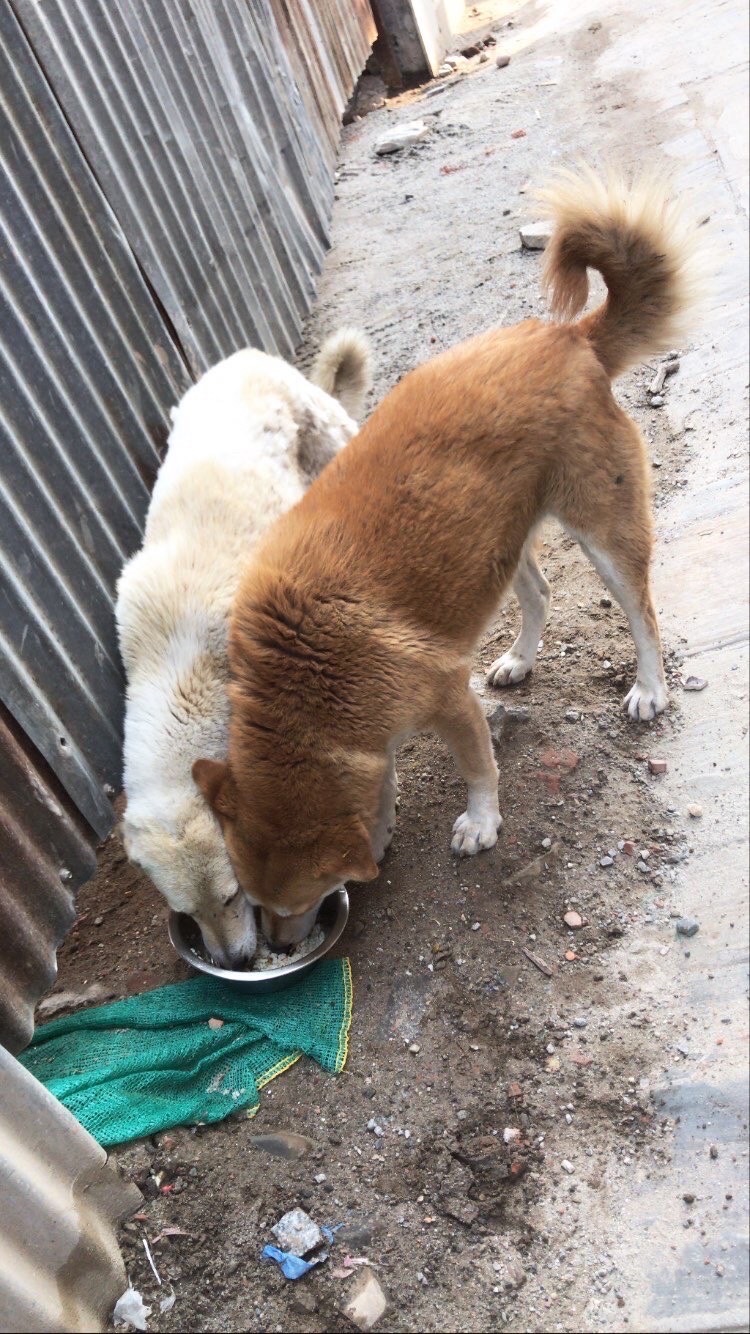
Charman of the KAT Centre told the Post that while it was commendable that communities were caring for strays, dogs in commercial areas and around temples might suffer.
“It’s these dogs in Boudha and other temple and commercial areas that I would be worried about,” said Charman. “These are places that would be good to visit but as of today, we’re not risking that.”
On the government end, Kathmandu Metropolitan City Environment Division Chief Hari Bahadur Shrestha said that a meeting had been held regarding animals, but no decision had been taken so far on keeping them fed.
"There was a discussion regarding feeding stray dogs and monkeys, but how we will do it is still undecided, because people should not walk in groups," said Shrestha. While a meeting on Friday would decide on the issue, Shrestha requested people to feed their neighbourhood dogs by giving them their leftovers.
But for dog lovers like Dekey, feeding the neighbourhood dogs is “a shared responsibility”.
“I know it’s risky to go out everyday to feed the dogs, so I left packets of food with people I knew in different neighbourhoods so that they could feed dogs in the coming days,” she said. “The most sustainable solution could be people feeding stray dogs in their respective neighbourhoods. This will mean people like me won’t have to go far feeding dogs in these difficult times.”




 11.43°C Kathmandu
11.43°C Kathmandu.jpg)














